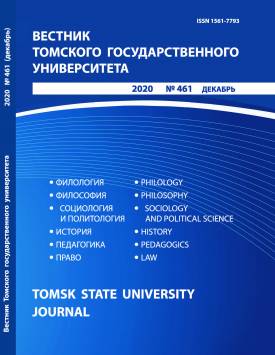Double Standards of Criminal Procedure Coercion in Extradition Legal Relations
This article states that the current legal construction, intended to ensure possible extradition from Russia to a foreign country, is far from perfect. Considering criminal procedural law, international treaties, the established practice, the authors come to the conclusion that the main problem related to restraint measures in the context of extradition is "double standards". The following levels of double standards were established: 1) in the correlation of provisions of international and domestic law that define guarantying measures of extradition; 2) in the correlation of provisions of domestic legislation; 3) in the interpretation of all mentioned provisions by legislative authorities. The authors have found that double standards on the first level lie in the definition of the character of restraint applied to provide extradition: detention in international documents and different variants in the RF Criminal Procedure Code. However, according to the constitutional hierarchy of Russian legal sources, different variants cannot be applied regardless rules established by the international treaties of the Russian Federation. The main idea of double standards on the second level is the legislator's complex definition of the nature and essence of extradition coercion. According to Article 466 of the RF Criminal Procedure Code, it is a measure of criminal procedural restraint. At the same time, Part 5 of Article 460 of the RF Criminal Procedure Code speaks about measure of restraint and detention in the context of the sentence which came into legal force. The authors note that, on the one hand, independent grounds for extradition are set; on the other hand, depending on this feature, there is no differentiation of the procedure for deciding on the necessity to apply restraint measures or to extend them. As a consequence, according to standard procedure, there are no objective preconditions to extend the detention period, as long as the purpose of detention does not change in this case and the issue of material grounds for selecting restraint measures (extension of detention) is beyond the jurisdiction of the Russian Federation. The authors pay attention to the serious theoretical error in the opinion of the Constitutional Court of the Russian Federation, which does not take into account the mentioned essential characteristics of the restraint measure for providing extradition, but considers it as an ordinary restraint measure. As for double standards on the third level, all the mentioned provisions as a whole form an extremely mixed legal framework afflicted with the "logical circle" vice, which seriously complicates the application and interpretation of the legal provisions by supreme judicial authorities. The authors propose to supplement the Criminal Procedure Code of the Russian Federation with a separate integral mechanism of coercion to provide extradition, with a due consideration of its essence, nature and outstanding features.
Keywords
international cooperation in criminal cases, extradition, criminal procedure coercion, restraint measures, detentionAuthors
| Name | Organization | |
| Zaitsev Oleg A. | Institute of Legislation and Comparative Law under the Russian Federation Government; Russian State University of Justice | crim@izak.ru |
| Potapov Vasiliy J. | Pitirim Sorokin Syktyvkar State University | law@syktsu.ru |
| Smirnov Pavel A. | University of the Prosecutor General's Office of the Russian Federation | smirnoff__pa@mail.ru |
References

Double Standards of Criminal Procedure Coercion in Extradition Legal Relations | Vestnik Tomskogo gosudarstvennogo universiteta – Tomsk State University Journal. 2020. № 461. DOI: 10.17223/15617793/461/28
